I have to admit when I first came across Parker and realized his age than, 16teen, my first thought was, oh no, just another gimmick to gain attention by some, more or less, brainless adventurer. Especially when I quickly, with not too much interest, browsed through what had been written and saw that he wasn´t only really young, but also involved with the climate change…well, I stopped reading. I have seen too much, heard too much and I am so fed up with all these explorers and adventurers who tie up with the issue of climate change because it has been, maybe still is, a corporate thing to look good in the eyes of the public. It means getting sponsor money. I am not saying it is wrong, I am just saying I am fed up with so many using it, when in reality they don´t really care that much about the seriousness of climate change. My personal opinion is that you have to tie up with something you really believe in, which is close to your heart, whether it is a good way to get sponsorship or not.
However, after reading Parker´s article and looking into more what he has done, his thoughts, well, ladies and gentlemen, I think we have a genius coming up here who really knows what he is doing. He is ambitious, knowledgeable and just the explorer who should get involved with these issues of climate change. He has burned for since before the time of becoming a teenager. In my mind, this is extra ordinary. I love his article and all you young people out there with thoughts about the meaning of life or how to find a life you went, you have the blue print here!
Thoughts from a young explorer
By
Parker Liautaud
How I got into this field probably differs from the backgrounds of most adventurers or explorers. While I did start off small – the occasional trip in the Rockies or in the Atlas Mountains – and gradually stepped it up, my expeditions in the Polar Regions were inspired by an interest in how the planet was changing, and what it meant for the people living on it. I’m talking, of course, about climate change, a topic so ubiquitous in the media nowadays that the majority of us no longer absorb it. At around 12 years old, I started to become increasingly frustrated that my interest in climate change was underlain by a lack of understanding of the fundamental science behind the issue. I began to spend a lot of time outside the classroom trying to get to grips with a very complex matter that was, and still is, far outside of my league. It was from this perspective that became interested in exploring the world around me, but it wasn’t until I joined an Antarctic expedition at 14 years old, aboard the Russian scientific vessel the Akademik Ioffe, that I concretely decided to devote my time (for the foreseeable future) to projects in the Arctic and Antarctic.
The next two and a half years of my life, up to this point, would be turbulent, exciting, and at times, bitterly disappointing. Being young in this field, and starting from scratch, has its advantages – notably the media and sponsorship “hook” – but it certainly has many drawbacks. When I decided back in 2009 that I wanted to try to become the youngest to walk to the North Pole (in an expedition admittedly not as ambitious as one starting from Canada or Russia), I quickly realised that funding was the big problem. Most of you reading this will already know what I’m talking about. But I needed to find the money both for the expedition and the organisation. As a 15 year-old, I found it almost impossible to find the right “tactic”. With no experience, contacts, money or credibility, I hardly expected otherwise. The problem, therefore, was that I resorted to “cold calling” (by email and post). And, as I’m sure most of you who have done similar things will know, being rejected several thousand times really takes it a lot out of you.
Throughout the process, I was lucky enough to be able to connect with some very experienced explorers– Pen Hadow, Ben Saunders, Eric Larsen, and countless others. All gave me invaluable advice. And, with my self-esteem at an all-time low, I somehow found a fantastic corporate sponsor, General Electric. However, as a young person at the moment, I feel like we (young people) are constantly being called upon to justify irrelevent characteristics and what other people are doing. GE did a lot for me, and helped me to launch the organisation of my dreams (for which I cannot thank them enough), The Last Degree (named after my first expedition, but oddly enough is remarkably well suited to a climate change project). The tabloids tore me to pieces for being an Etonian, which gave a lot of people the wrong impression. The owner of a blog named “Venture Beat”, quite a well-known business blog, decided to announce publicly, without the slightest bit of research, that my father had paid for the whole trip and/or had used his contacts to get me sponsors (a completely false assertion, in every way), a piece of “news” that spread like a tidal wave through the web (especially when we partnered with Foursquare). The Daily Beast wrote an article that had the title “10 young people with parents that deserve to be shot”. I was number 2 on the list. My point is that from my perspective, it appears many people are inherently sceptical of young people taking initiative. This is fine, to an extent, because it is justifiable to be worried about the safety, experience, or motivation of a young person. However, there comes a point where the line has been crossed, and that point, in my opinion, is when you’re willing to openly declare a lie (I’m still confused as to why it was written) to bring a person down.
I am not one to complain – how this whole project has panned out has been incredible. My first North Pole expedition, thwarted by abnormally high temperatures, southward drift, and other factors, opened a lot of doors for me (I was in for a surprise though – I thought the first round of financing was difficult, but I had no idea what was to come for my second attempt). Apart from the fundraising, much of the logistics, training and other factors fall primarily under my control, and I greatly enjoyed the feeling of being in control in such an unpredictable project. However, the climate change mission (The Last Degree was launched on my first North Pole expedition) proved to be tricky to handle. As is the case for young people starting initiatives all over the globe, credibility is a significant issue. The bottom line is that it is hard for someone that is very young to become credible enough to be trusted with such a controversial issue, especially with the science behind it. Creating a social movement is one thing, but taking the next step to doing real scientific work proved to be problematic for me. It is worth noting that at the point where I decided to take this step, I had essentially failed in my North Pole expedition, so my credibility was at an extreme low anyway. Understandably, few institutions wanted to trust me with doing research on the ice. This seems to be a recurring problem for young people everywhere, and from what I’ve seen, there are only two extremes when it comes to this issue. There are those that really encourage young people to go out and make an impact, to not give up on their ideas and dreams – and then there are those that believe that exploration, and climate change science, should both remain the concern of older men and women who have seen it all before, know the risks, or have a concrete and reputable academic background in oceanography, [paleo]climatology, or something of that sort. I found myself caught in the middle of both of these arguments, as have many other young people. I felt very honoured when I was asked by the University of Alberta and the European Space Agency (for the CryoSat-2 satellite) to do research on the ice, a request that completely fulfilled the purpose of my second North Pole expedition (which reached the pole on April 10th of this year).
The issue, however, is broader than my project. A big part of the work that I try to do is aimed at getting young people to take responsibility for the current state of the world we live in, and become leaders for positive change (http://www.facebook.com/thelastdegree). Attitudes towards young people have stuck for a long time, and only in the past couple of years have the older generations come to realise that how well educated, connected, or influential a person is are factors no longer defined by the ranking of one’s school. Instead, it has much more to do with how proactive a person is, especially online. My generation has grown up with this at the front of their minds, and it is in this way that young people are becoming world leaders (take the chain of Middle Eastern revolutions that have arisen in the past year as an example).
In the end, being very young (and comparatively very inexperienced) means that I have to approach what I do in a very different way than an experienced explorer would. I don’t see this necessarily as a negative thing, because the process has taught me an enormous amount. I would also like to take this opportunity to thank all of those explorers, some of whom may hopefully be reading this, that gave me some very useful advice from the very beginning. I know I would not be in this position if it were not for them.
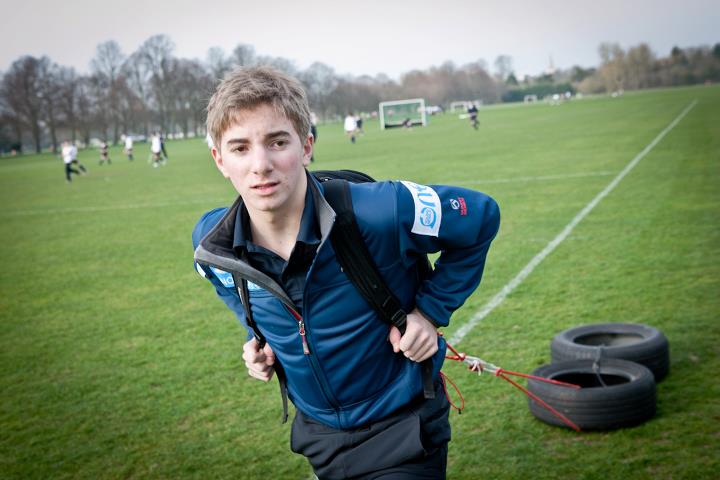
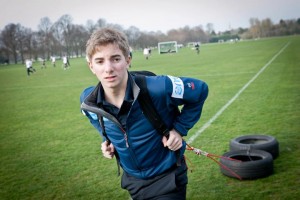
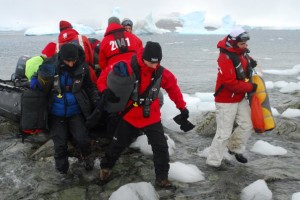
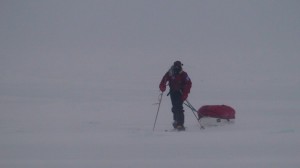
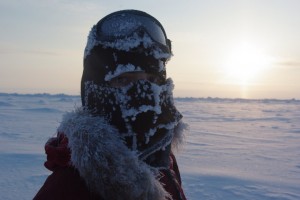
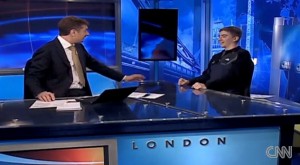
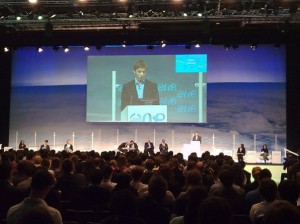


This is fantastic article with insights into the mind of a young man who has chosen to follow his life’s dream, and who discovered a noble cause as part of the process. Parker, your tenacity and commitment are truly admirable, and from your fought-for wisdom, even more experienced explorers have much to learn. You dreamt large, and you dared to fail…. and for both of those qualities, you deserve to be proud. It is an honor to know you….
Dear Mr. Mikael,
I have been reading quite a lot about your exploits in Siberia. People like you have had quite an effect on me and as a result I have really become quite addicted to outdoor life. I know this is a longshot as I’m sure your quite the busy man. However I was hoping you could help me with something? I am planning a small expedition to Hardangervidda and was thinking about using a Safir 5 cp tentipi. I see you have used this tent a lot.
I don’t know if you have experianced Hardangervidda? This is on a mountain plateau at 1200 meters and the conditions there are exactly what you would have in the Artic. With very good chance of strong winds and blizzards down to -40 degrees C.
Do you think this tent will do the job? What was your impression of this tent? I would really appreaciate your imput as its almost impossible to judge just from the guys who are trying to sell you the product. Any help at all would be great.
Anyway thanks for reading and I hope I havn’t troubled you too much.
Kind Regards
Michael Shelley